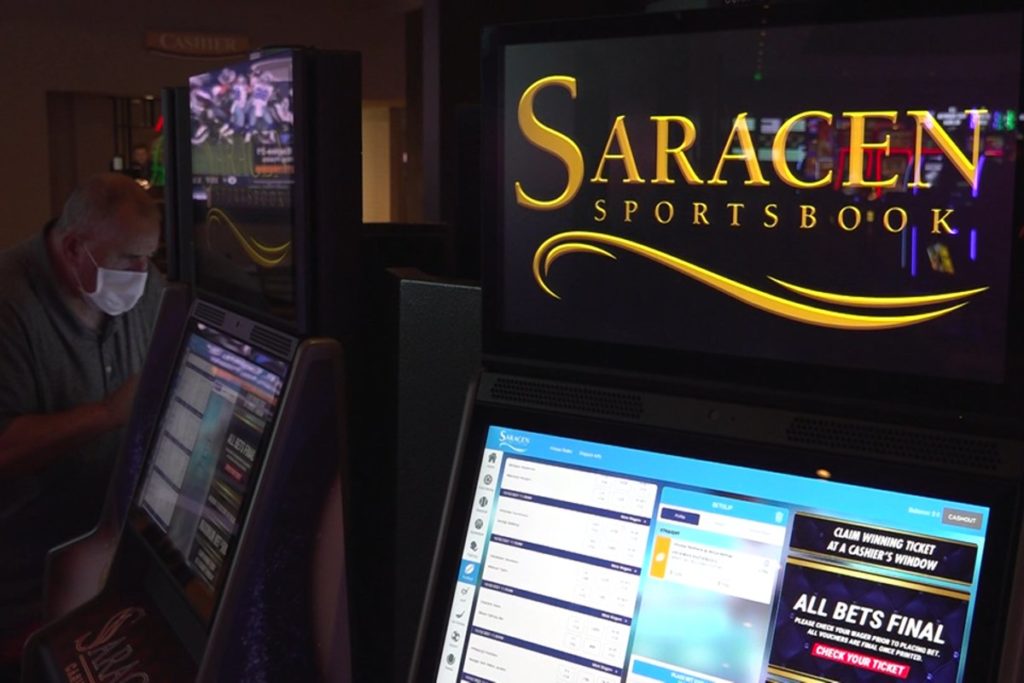Innholdsfortegnelse
Arkansas voters legalized commercial casino gambling through a November ballot referendum. Along with allowing two racinos to transition into full-scale casinos with slot machines and table games – as well as two brand-new from-the-ground-up casinos – Issue 4 legalized sports betting in the state.
Sports betting commenced in the summer of 2019 at Arkansas’ two racinos turned casinos — Southland Casino Racing and Oaklawn Racing Casino Resort. A sportsbook has also since opened at the new Saracen Casino Resort in Jefferson County’s Pine Bluff.
Issue 4 allows state officials to authorize mobile sports betting. Internet sportsbooks have generated the vast majority of the betting action in states that have retail and online sports betting.
But before the first mobile wager in Arkansas can be placed, the Arkansas Racing Commission (ARC) needed to finalize rules to govern the expanded gaming. It accomplished that during its meeting earlier today.
Mobile Rules Approved
ARC today passed a series of governances that will regulate mobile sportsbooks. However, sportsbook firms like DraftKings and BetMGM took issue with a component of the regulatory details. That clause requires at least 51 percent of a sportsbook’s gross gaming revenue (GGR) stay with the licensed land-based commercial casino.
The Racing Commission fielded stern opposition regarding the revenue-share mandate from the interactive sportsbooks. Reps argued that no state before Arkansas has forced revenue terms on land-based casinos and their third-party online sportsbook partners.
“No other state that has legalized sports wagering dictates how revenues are shared between a licensee and its vendors,” a BetMGM statement to the committee stressed.
The sportsbooks contend that they should keep the majority of the sports betting income, as their platforms are responsible for marketing to players. Those customers, the sportsbooks claim, generate revenue for the casinos in a variety of other ways.
The US gaming industry spent nearly half of a billion dollars on marketing over the last 12 months. Much of the spending has been by sportsbook and iGaming firms advertising their online operations in states where such gambling is legal.
Despite the feedback, ARC passed its mobile sports betting rules with the revenue directive.
These proposed amendments prohibit a casino licensee from contracting with a third-party vendor which receives the majority or more of the net gaming revenue received in conducting sports wagering,” the ARC summary said.
Each mobile sportsbook that receives a license or “skin” from ARC must be partnered — aka tethered — to one of the four brick-and-mortar casino licensees. The approved ARC mobile sportsbook rules allow each casino to partner with only one internet sportsbook platform.
Not Final
The Arkansas Racing Commission sent its proposed rules on mobile sports betting to the state’s Legislative Council.
The bipartisan Legislative Council consists of 20 state representatives and 16 state senators. The powerful council acts as a mini-legislature and must approve amendments to state laws such as mobile gaming. There is no timetable as to when the council will begin reviewing ARC’s recommended mobile sportsbook conditions.
Sports betting revenue will be lumped into a casino’s overall total gaming revenue. A casino’s gaming revenue is subject to a 13 percent tax on the first $150 million in GGR. That rate increases to 20 percent thereafter.
The post Arkansas Mobile Sports Betting Rules Pass Racing Commission, But With Controversy appeared first on Casino.org.
